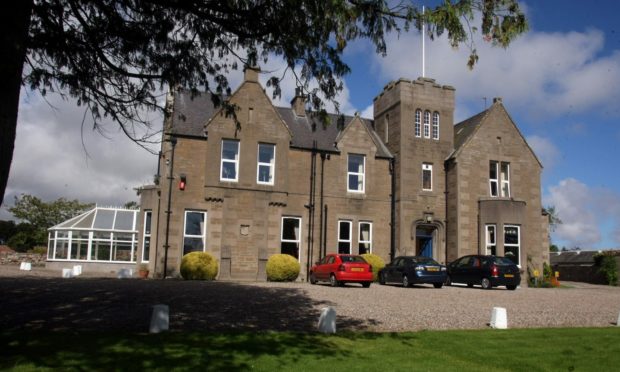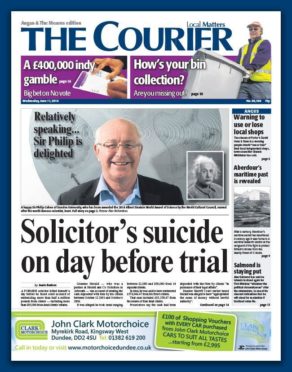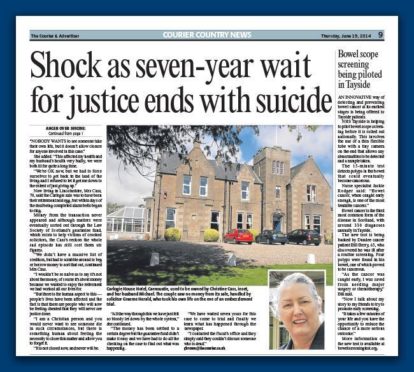An Arbroath solicitor who killed himself seven years ago on the eve of his embezzlement trial did swindle cash from clients, according to a newly uncovered tribunal finding.
Graeme Stark Herald’s suicide meant he never faced court proceedings over allegations he stole over £500,000 from clients between 2001 and 2006.
The ruling by the Scottish Solicitors’ Discipline Tribunal was made in 2010 but was never published.
When asked, tribunal officials said it had been an oversight.
It is believed to be the first time any type of ruling on Mr Herald’s guilt has been made in the case.
The organisation initially delayed release of the documents until the conclusion of the trial, which was dropped following his death.
Suicide prevented closure for victims
The news of his charges and subsequent death, aged 55, shocked the community of Arbroath at the time.
Many of those he allegedly stole from were from deprived communities and the small sums taken had a big impact on them.
Alleged victims of Mr Herald’s actions said his death would not allow closure for anyone involved with the case.
Among those due to give evidence in the trial was Christine Cass who, with her husband Michael, owned the Carlogie House Hotel on the outskirts of Carnoustie.
The lives of the pair fell apart when they saw no money from its sale, which was handled by Mr Herald.
Mrs Cass said his suicide deprived them, and other alleged victims, of the chance to “look him in the eye in the dock and see justice done”.
They had waited seven years for him to face trial.
Speaking in 2014, she said: “I was gobsmacked, just speechless when I heard what had happened.
“No one wants to lose someone in these sort of circumstances but it is not enough to say that we have to consider the dead person and their family over and above the victim.
“This affected my health and my husband’s health very badly. We were both ill for quite a long time.
“We had to force ourselves to get back in the land of the living and I refused to let it get me down to the extent of just giving up.”
The Law Society of Scotland, which helped the couple recoup some of the cash through the body’s guarantee fund, brought the case to tribunal.
Solicitor was ‘teaming and lading’
The well-known Angus professional ran Herald & Company on Arbroath High Street when the allegations came to light.
Of the cash he was said to have misappropriated over £85,000 was from the estates of four dead clients.
The highest single amount taken from a client quoted in court documents was £90,000.
The tribunal found Mr Herald had committed professional misconduct.
The judgement said that over a lengthy period of time on a repeated basis, Mr Herald was guilty of “stealing and embezzling funds” belonging to his clients in order to fund his “personal lifestyle and professional practice”.
A witness explained at the hearing the solicitor had accrued debts and was operating a scheme of “teaming and lading”.
This meant he would steal a client’s money and then when they were looking for it, he stole from another client to pay them.
It caused severe distress to his clients and one customer almost had her house repossessed by the bank.
The Crown Office said it does not discuss historical cases and confirmed there are no outstanding cases in relation to Mr Herald.
Tribunal finds respected Dundee University professor tried to cover up plagiarism


